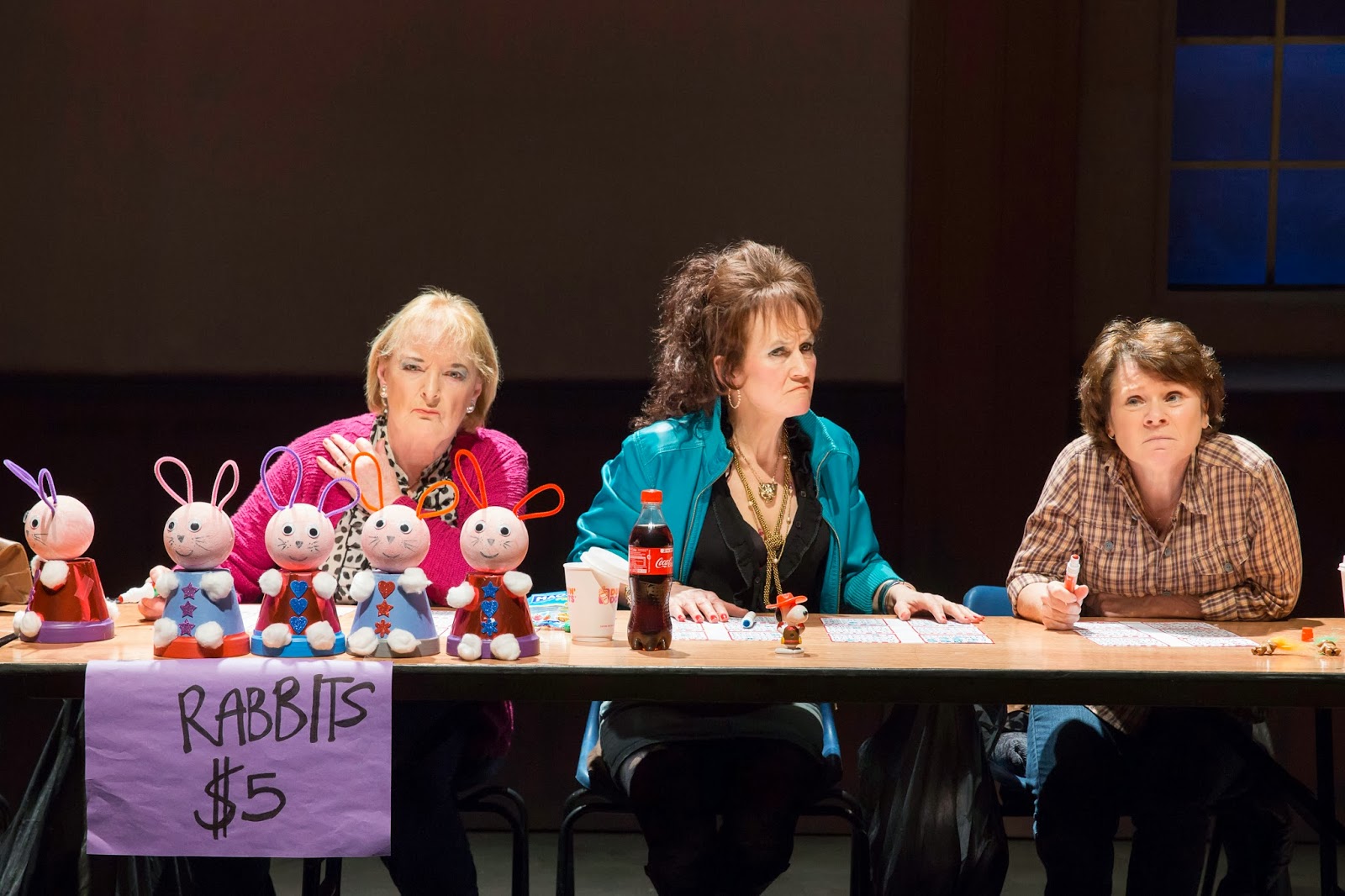'Good People' review or 'You escaped. I didn't.'
'Good People', David Lindsay-Abaire
Hampstead Theatre, 5th March 2014
Written for Blouin Artinfo
Hampstead Theatre, 5th March 2014
Written for Blouin Artinfo
Just when you think Imelda Staunton has reached the peak of her powers, playing the scabrously entertaining Mrs Lovett in ‘Sweeney Todd’, she goes and ups her game. Staunton’s turn as the motor-mouthed Margaret in David Lindsay-Abaire’s ‘Good People’ is an absolute belter. The play isn’t half bad either.
‘Good People’ is set in (Pulitzer Prize winning) Lindsay-Abaire’s hometown, Southie in Boston, and rings with the clarity of a lifetime’s worth of observations. It is shocking but effortlessly so, fiercely entertaining but always authentic. The show is so truthful and rich that it does not have to try too hard to say an awful lot.
The play kicks off with single mother Margaret at rock bottom. As we watch Margaret get fired from her job working on the tills, Staunton blazes with defiance. Her eyes are practically on fire and she never stops talking. This is a life in which silence has invariably been filled with bad news and disappointment.
Margaret chews over her situation with her two friends, Jean (Lorraine Ashbourne) and landlady Dottie (June Watson). Their chat is far from soothing. As the ladies discuss Margaret’s dwindling options, they call each other assholes and cluck over the relative luck of ‘old Remy with half his face blown off’. They bitch and swear and make far too much noise to ever really stop and dwell.
Jonathan Kent’s production fizzes with such energy and defiance – and just a flicker of fear. Hildegard Bechtler’s set is backed by a grainy picture of the town’s landscape and all the props are painted over with a blurred finish. There’s something careless about the set, as if the even the designer can’t muster the energy to highlight the details of a life lived in Southie.
The comedy shifts a gear when Margaret discovers that an old flame, Mike (Lloyd Owen), has moved back to town and ‘made it good’ as a doctor. The first meeting between Margaret and Mike hums with resentment unspoken, accusations unthrown. The explicit comedy of the kitchen is replaced with something deeper and gnarlier and hidden. Mike’s speech is clipped and peppered with the phrase, ‘I know’. The gulf of learning and luck that now separates these ex-lovers lingers in the air.
This gulf deepens when Margaret visits Mike in his fancy new home with his fancy new wife (Angel Coulby). Whilst Coulby pours smooth phrases over a tense encounter, a line of truth materialises between Margaret and Mike. The connection between them is ugly and dangerous but it is also honest. Staunton’s Margaret becomes emboldened by the hypocrisy that surrounds her. When Mike blithely asks Margaret, ‘How’s the wine’, she spits out the vicious reply, ‘How the fuck should I know?’
In one mesmerising exchange, Staunton cycles back through the chain of bad luck that has led up to her life today. She never releases the anger that blasts from her eyes but instead lets it hover, contained and captivating. The one time Staunton nearly lets go, she reaches out to smash a vase. She stops herself at the last minute; what’s the point of smashing anything in a house that is insured? How does one compete with a life of luck and influence, which simply cannot be broken?



Comments
Post a Comment